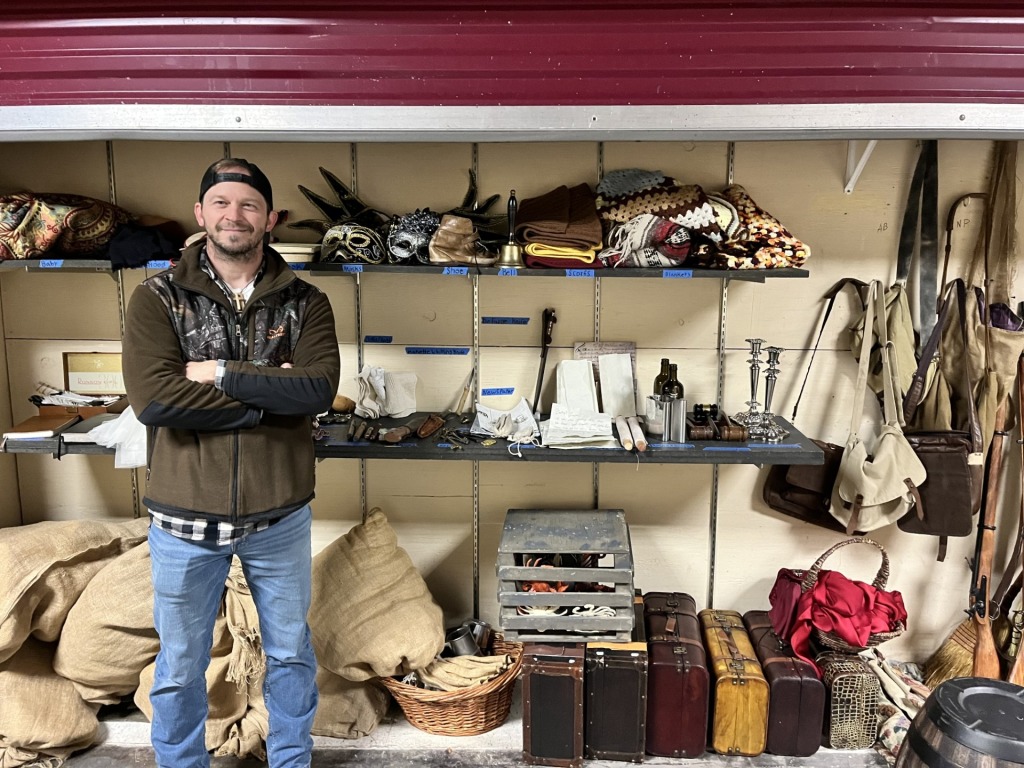Nathan Klein, props manager for Liberty University’s Department of Theatre Arts has learned from many years of experience that creating props for shows requires communication, flexibility and creativity.
Klein began working in the Theatre Arts department in 2011 when he was first hired as a rigging operator and carpenter on set. As a new hire, Klein worked in many different backstage areas and soon discovered that his particular talent and enjoyment was in props. At the end of his first year, he officially began work in the props department crafting props for use onstage.
“Props is a little bit of a wild card, because you have to know a little bit of a lot of different things,” Klein said.
As the props manager, Klein’s job involves constructing pieces out of wood, conducting minor electrical wiring for switches and buttons used by actors and sourcing historic-looking materials for sets. Not only does he craft the objects, but he also oversees the rest of the operations of the prop department. Since many shows take place in distinct periods or seasons, such as 18th-century France or 1960s New York, researching specific time periods to find or create the perfect prop is a significant part of the job.
To Klein, props are a necessary part of establishing the world of a stage production, further immersing the audience in the narrative’s world.
“You can tell a show with just actors and just lights, but it’s the other things, like when you start adding costumes, that really make you feel like you’re stepping into a world or into the past,” Klein said. “I think props help anchor that.”
Klein’s process for making props is dependent on collaboration with many other aspects of the theater. He starts by creating a preliminary list of props from the first script readthrough and develops the list and prop concepts during rehearsals and meetings with the show’s director and set designer. Props must be cohesive with both the director’s creative vision and the overall setting of the stage created by the set designer.
Klein stressed flexibility as an essential character trait in his line of work. He has learned to prepare to restart projects and adjust as the show takes a new direction.
“You put a lot of work into something, and we would always tell each other, ‘alright, now remember, don’t fall in love with this!’” Klein said. “There’s a good chance that you do all this work, and it goes out on stage and it doesn’t work how we thought it would work, so it either gets cut or you have to completely redo it.”
According to Klein, communication is another cornerstone of the show-making process. Especially when working with creative minds, it is important for everyone to clearly explain their ideas and expectations as there can be a variety of interpretations involved with building something from scratch.
“Being flexible and learning how to collaborate is super crucial, and I feel like that’s helped me in so many different ways,” Klein said.
Because each show put on by the Department of Theatre Arts is unique, the prop department is always looking ahead to how they can bring the story to life through the objects that exist within it. Klein said that in each show there is always one piece that stands out as especially fun to make. Some of his favorite props include Milky White from “Into the Woods” and King Triton’s trident from “The Little Mermaid.” In the most recent show, “Tale of Two Cities,” Klein is especially proud of a barrel prop he made that spills ribbons made to look like wine.
Quam is a feature writer for the Liberty Champion.
